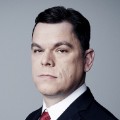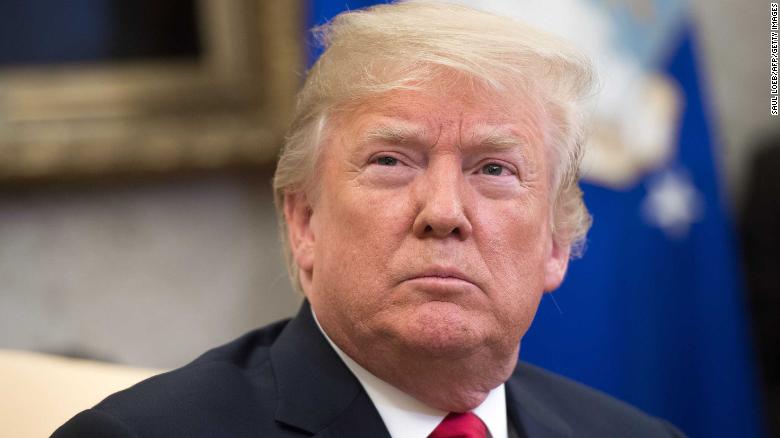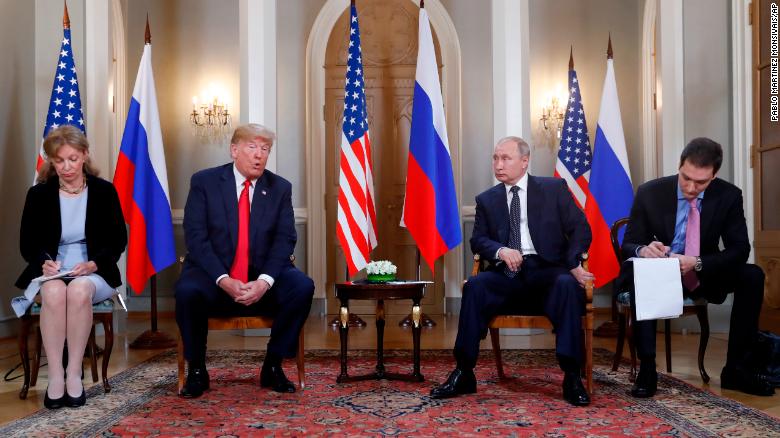U.S. Edition+
begin quote from: Why Trump blinked on Putin and trade
Why Trump blinked
Washington (CNN)President Donald Trump has spent weeks drawing battle lines for a trade war with Europe and courting Vladimir Putin -- causing almost universal angst in Washington. On Wednesday, he blinked on both.Trump's decisions to put trade hostilities with the European Union on hold and to delay the Russian President's visit he had planned for the fall are likely to be widely welcomed among Republicans and among US allies who have been concerned by his tendency to elevate US enemies while criticizing friends.At the White House, Trump declared what appeared at first to be a stunning breakthrough in transatlantic trade amid fears of an all-out trade war."We had a big day. Very big," Trump said, promising a "new phase" in the relationship in which both sides win, after meeting European Commission President Jean-Claude Juncker. They sealed their meeting when Juncker kissed Trump, pictured in a tweet posted by Trump later Wednesday evening. It was a far cry from the President's smoldering rage at Europe that was in evidence during his trip across the Atlantic earlier this month."This was a very big day for free and fair trade. A very big day indeed." Trump said.A victory or a walk-back?
The President needed a big day. His White House reeled Wednesday over a tape made by his former lawyer Michael Cohen aired on CNN'S "Cuomo Prime Time" that showed he knew about an effort to pay off a Playboy model who said she had an affair with him that contradicted his previous denials.Trump refused to answer questions about the tape during an photo-op with Juncker -- and the White House later banned CNN White House correspondent Kaitlan Collins from the trade announcement for asking them.The announcement on trade was dressed up as a huge victory, held in the Rose Garden, the traditional venue for big state announcements, and in front of a group of Republican lawmakers apparently called down from Capitol Hill to serve as a backdrop.Yet in essence, its real effect seemed to be to disguise a step back by the President who has imposed steel and aluminum tariffs on US allies in Europe, repeatedly threatened to slap a 25% tariff on European cars imports and blasted the European Union in public.The two sides said that they had agreed to discuss tearing down all tariffs, trade barriers and subsidies on non-auto industrial goods. Trump said that they had also agreed to work together to resolve the issue of "retaliatory tariffs" imposed in recent months.The President's announcement that Europe will buy more soybeans and liquid national gas could be good news for US agriculture and industry.And Juncker, apparently keen to flatter Trump, was eager to play along in language that the President appreciates."When I was invited by the President to the White House, I had one intention: I had the intention to make a deal today. And we made a deal today," he said.It would be huge news if the US and Europe ever agreed to get to the zero tariffs, zero subsidies and zero barriers standard that both leaders proposed on Wednesday.But it was also clear that the deal unveiled on Wednesday was a truce -- rather than a peace treaty. It averted the trade war Trump had effectively started -- and included a vague commitment for talks toward a real but distant goal. Juncker, though, said both sides agreed to hold off on future tariffs while the talks were taking place -- in an apparent victory for Europe.In that sense, the deal appeared more of a fix for a problem Trump had created rather than a genuine breakthrough on thorny underlying issues. Given the unpredictable nature of the President's diplomacy it's uncertain how long the trade amnesty will last -- once the script is no longer in front of him and when he is fixating at European nations he referred to this month as foes.After all, on several occasions the administration seemed to reached agreement with China to avert Trump's trade war, but each time, the President unilaterally doubled down.The President's apparent blink on trade came a day after the administration unveiled a $12 billion aid package for farmers hurting from retaliatory tariffs, especially imposed by China, on US products.Given vehement complaints by Republicans in Washington about the tariff war, as well as cries for help from GOP candidates and office holders in the Midwest ahead of midterm elections, questions will now be asked whether the administration has suddenly realized the political impact of Trump's populist trade approach and is taking steps to mitigate it.Trump-Putin II delayed
The trade deal issue was not the only climbdown on Wednesday.Trump's national security adviser John Bolton announced that the Russian President would now not visit Washington in the fall -- following an invitation issued suddenly by the White House on Twitter last week.Bolton blamed the "witch hunt" -- the White House's terminology for the special counsel's Russia investigation -- for the delay and said the visit would now take place after the "first of the year" when the probe was over.The White House has no control over the duration of Robert Mueller's probe, so its timeline may well be over optimistic.And Trump's reversal again came amid fierce opposition from Republicans on Capitol Hill over the invitation which followed his deferential behavior when he met Putin in Helsinki last week, and warnings from US intelligence agencies that it is already targeting the midterms.Since the President also declined to answer questions about the Putin invitation, the prospect that he had been snubbed by the Russian leader could not be ruled out, though the Kremlin -- which had never showed much enthusiasm about the prospect of a Putin visit to Washington -- said Wednesday that it hadn't begun planning for the summit.Given that the Russian leader so comprehensively outdueled Trump in Helsinki, Putin may have had little inclination to offer the US President a do-over in such a high-profile setting.The two men could still meet elsewhere this year. Both would be expected to be at the Asia Pacific Cooperation summit in Papua New Guinea in November, for example, or the G20 summit in Buenos Aires later this year.Given the sometimes erratic nature of Trump's impulsive foreign policy making, in on the cuff chats with reporters or on Twitter, no one can take it to the bank that where Trump landed on Europe and Putin will end up being his definitive position.In a contentious hearing on Wednesday, senators repeatedly challenged Secretary of State Mike Pompeo on the question of whether US foreign policy was represented by formal statements of the State Department, the Pentagon and the foreign policy bureaucracy in the White House or Trump's often conflicting comments.Pompeo complained that senators "somehow disconnect the administration's activities from the President's actions. They are one in the same."How far that proves true for Wednesday's developments on Russia and EU trade might be best be covered by another of the President's favorite phrases: "We'll see."




















No comments:
Post a Comment